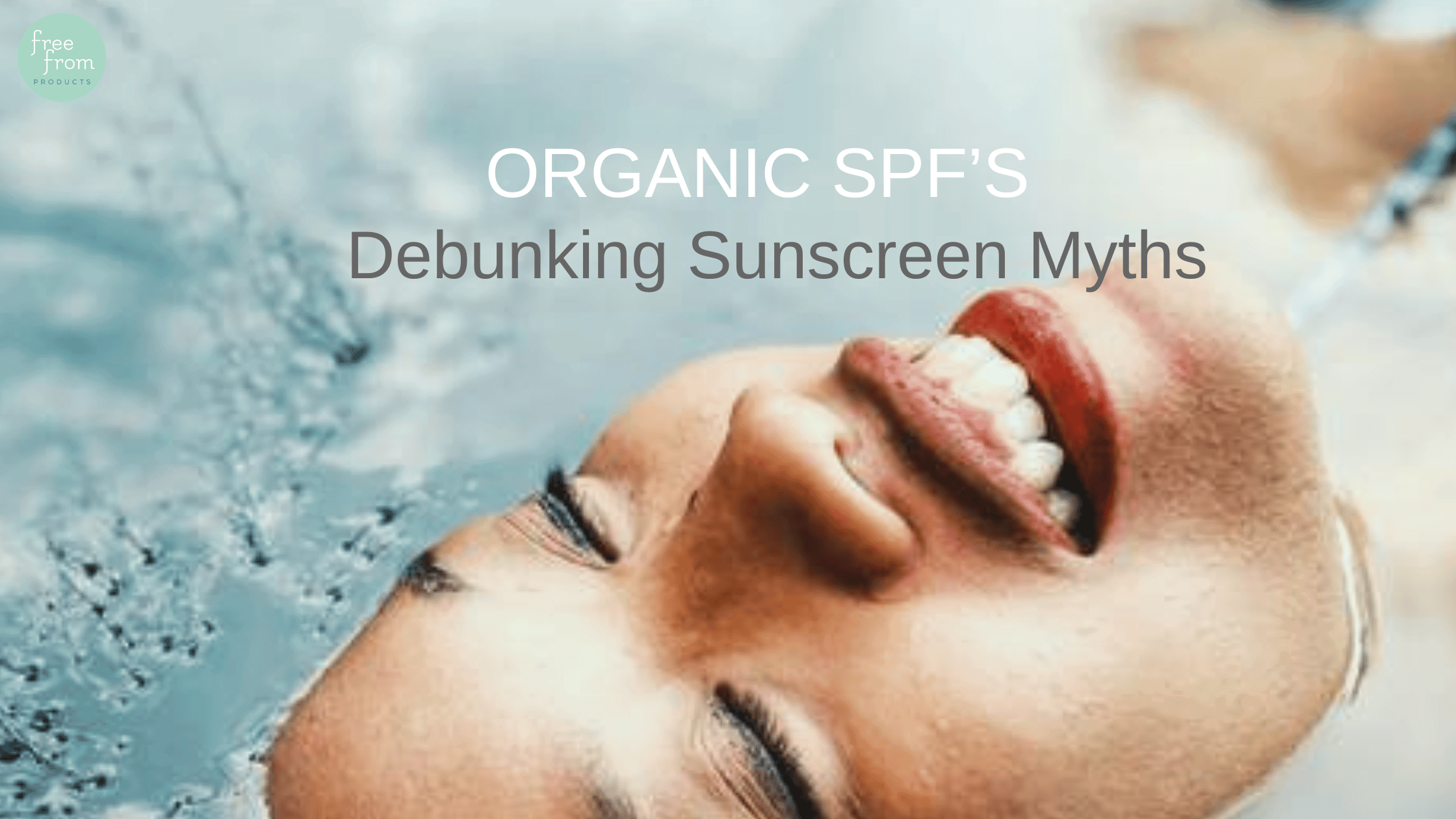Organic SPF’s – Debunking Sunscreen Myths
Unveiling the Truth About Sun Protection
As summer approaches and the sun shines brighter, it’s important to separate fact from fiction when it comes to sunscreen and sun safety. With the abundance of information available online, it’s crucial to rely on credible sources and expert opinions. In this blog post, we debunk common myths surrounding sunscreen by examining and repurposing content from two reputable sources: the British Skin Foundation and the National Health Service (NHS). By shedding light on the truth, we aim to provide you with accurate information for a safer and more informed approach to sun protection.
- Myth: “Sunscreen is only necessary on sunny days.”
Debunking: According to the British Skin Foundation, UV rays can penetrate through clouds, meaning your skin is still at risk even on cloudy days so it’s important to wear sunscreen every day, regardless of the weather, to protect your skin from harmful UV radiation.
- Myth: “A high SPF provides significantly better protection than a lower SPF.”
Debunking: The NHS explains that higher SPF values do offer slightly more protection, but the difference is minimal.
Fact: it’s important to choose a sunscreen with at least SPF 30, as it provides adequate protection against both UVA and UVB rays. Focus on proper application and reapplication for optimal sun protection.
- Myth: “I don’t need sunscreen indoors or in the shade.”
Debunking: The British Skin Foundation highlights that UV rays can still reach your skin indoors and in shaded areas. So wearing sunscreen is essential regardless of your location, as UV rays can penetrate windows and reach your skin, leading to cumulative damage over time.
- Myth: “I don’t need to reapply sunscreen if it’s labelled ‘waterproof’.”
Debunking: According to the NHS, no sunscreen is entirely waterproof, and water-resistant sunscreens still need to be reapplied regularly.
Top tip: On holiday, it’s crucial to reapply sunscreen every two hours, or more frequently if swimming, sweating, or towel-drying, to maintain adequate protection.
- Myth: “Using expired sunscreen is still effective.”
Debunking: The NHS advises against using expired sunscreen, as its effectiveness may decrease over time.
Top tip: always check the expiration date on your sunscreen and replace it if it has expired to ensure optimal protection.
Summary
When it comes to sun protection – remember to wear sunscreen daily, regardless of the weather, and choose a minimum of at least SPF 15, ideally SPF 30. My favourites are currently Green People Scent Free Organic SPF30 and Shade, All Natural Sun Cream.
Apply and reapply sunscreen regularly, even indoors or in the shade, and replace expired sunscreen for maximum effectiveness. Hopefully, this has given a bit more of a background about SPF’s and sun protection, so you can enjoy the indoors and outdoors safely while caring for your skin’s health.
Scent Free Sun Cream SPF30 200ml | Sensitive Sun Cream | Green People
Find a stockist | Shade All-Natural Sunscreen by Not the Norm Ltd (shadecream.com)
Shop – AMAZINC! (amazincskincare.com)




